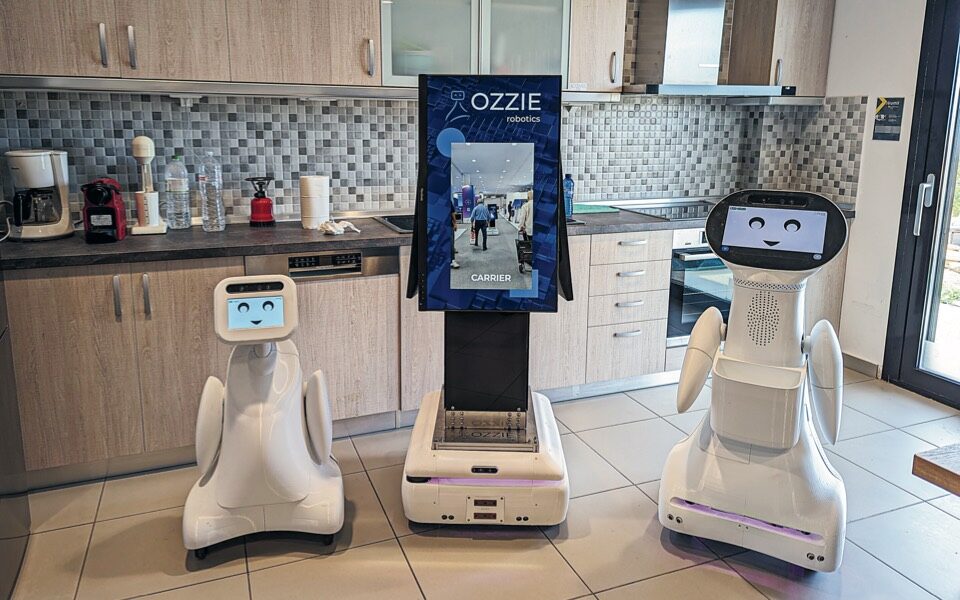Robots trained to be porters

Research toward integrating robots into daily life is being developed by Greek labs and startups. Instead of static industrial robots, which have been operating for years in major industrial countries, research has shifted to so-called collaborative robots, which are mostly employed in services and operate alongside and with people. The goal of the current research wave is to pave the way for automation and robotization in Greece as well, rather than just focus on research.
“We are moving forward with the implementation of two large – in terms of importance and duration – projects. Already in November we started a European research project with two parts. The second concerns the placement of products on supermarket shelves and is being carried out in cooperation with Lidl and Masoutis,” Dimitris Giakoumis, a researcher at the Center for Research and Technology Hellas (CERTH), who is also coordinating the project, told Kathimerini.
“In January we will start a project for autonomous driving, using robots in factories, healthcare facilities and elsewhere. The aim of the project is to train the robots with the appropriate use of data,” he said.
The project to use robots in airport baggage and shelving has research challenges that need to be addressed. “Training robots to handle more diverse objects is required. Baggage has a very wide variety, from heavy suitcases to backpacks. How the robot will grab them and how to reposition them needs work,” he noted.
“In this project, a self-propelled two-armed robot will be developed, which will have sensors that will provide it with a sense of touch and vision. The research interest is how it will see the barcode, either of the luggage or the product, to proceed to a similar placement, how the manipulations of the suitcase moving on the belt will be done,” said Zoe Doulgeri, professor at the Department of Electrical and Computer Engineering of the Aristotle University of Thessaloniki and head of the Automation and Robotics Laboratory.





